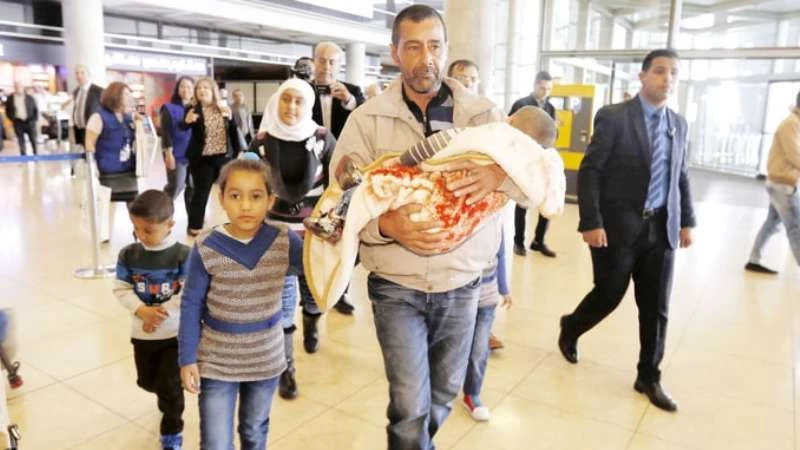Before the war, Nedal had studied agricultural engineering at university, where he took a particular interest in beekeeping; he’s part of the third generation of a family of farmers. As the violence escalated, Nedal and his wife and infant daughter fled on foot across the border to Jordan. There, he told me, "Every month I say, ’Okay, this On the flight over, Nedal and his wife both wept. They’d had a second child in Jordan, and now they found themselves en route to a distant country where they knew no one. But with help from a Lutheran nonprofit group called Samaritas, they’ve managed to settle in. Nedal has a job at a factory that makes signs for car washes and gas stations and he and his wife are both taking ESL classes. An extrovert, he remains frustrated by the pace of his learning, but he’ll practice English on strangers at the local Kroger’s and other parents at the playground whenever he gets the chance. His "big dream," he said, is to resume his study of bees at Michigan State University, which has a strong agriculture program, and eventually become a professor. "I have many ideas for bees," Nedal told me. Life still isn’t easy. Nedal misses his parents, who remain trapped in Syria. More recently, his seventeen-year-old cousin was captured and murdered by ISIS. The family only learned of the fate of the cousin, who’d been missing for months, via the Internet, on a website where ISIS posts images of killings. On his phone, Nedal showed me a posed photograph of his cousin that could have been from an American high school yearbook. Then he flipped to the next one: the cousin in an orange jumpsuit, kneeling in the desert, a masked man pointing an assault rifle at him. Then the next: the cousin’s corpse, bloody and sprawled on the ground. When I brought up Trump, Nedal became animated, as if he wanted to get a number of things off his chest: "See, listen to me! This is a good question. And important. When he "But now? If the United States have same Syrian problem? This is a problem."

Nedal grew up in Daraa, the southern city where the first Arab Spring-inspired protests against the dictatorship of Assad erupted. "The people watched Egypt, and we have hope, you know?" Nedal, who participated in the protests, said, speaking in broken English.


التعليقات (0)